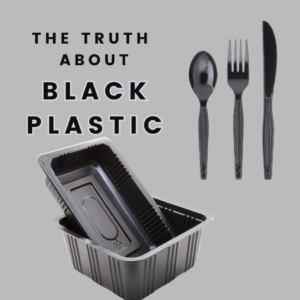July 31, 2023
Environmental Protection Agency
1301 Constitution Ave NW
Washington, DC 20460.

Docket ID No. EPA–HQ–OLEM–2023–0228
RE: Draft National Strategy to Prevent Plastic Pollution
Dear Administrator Regan,
Amidst an intensifying climate crisis and rampant plastic production and pollution, our country is long overdue for a comprehensive plan to address plastic production and pollution. This plan needs to support a circular and just economy and, as a result, healthier communities. With this in mind, we appreciate the opportunity to provide comments to the EPA’s Draft National Strategy to Prevent Plastic Pollution.
The Alliance of Mission-Based Recyclers (AMBR) is a coalition of the original pioneers of mission-driven, community-based nonprofit recycling in the United States. Together we are guiding new recycling policies and infrastructure investments to rebuild credible, transparent recycling systems. As recycling operators, AMBR members collect and sort tons of recyclables each month. From our vantage point of dealing with piles of recyclables, we can propose and implement systemic solutions. From the pile, we can look “upstream” at how products could be redesigned to be more resource-efficient, made from recycled content, less toxic, and recovered more easily. We can also look “downstream” at how systems and infrastructure could better recover and remanufacture materials into new products.
We are the boots on the ground making recycling work each and every day. We strategically work at the community level and leverage our experience towards broader advocacy and systems change, holding a clear and bold vision for a world without waste while we wrestle with the day-to-day challenges facing recycling today.
As mission-based recyclers, we know that we cannot recycle our way out of the plastic pollution crisis. Rather we need to keep precious resources in the ground by investing first in reduction and reuse followed by credible and effective composting and recycling.
We ask that you consider the following recommendations as you continue to develop the National Strategy to Prevent Plastic Pollution:
Reduce Plastic Production:
The primary focus of the EPA’s strategy to reduce plastic pollution should be to considerably reduce plastic production. As the draft plan states, globally, plastic production continues to increase rapidly, and most plastic products are not reused or recycled at the end of their life. Production and disposal of plastic have devastating impacts on human health and our climate with the environmental justice communities most impacted.
- While the steps laid out in the EPA’s draft plan, like reducing federal agencies’ reliance on single-use products, we need bold and immediate policy shifts in order to address the plastic production and pollution crisis. The EPA should be a leading voice for national policy changes that include:
Ending subsidies for fossil fuel extraction to even the playing field for recycled content - Developing a national bottle bill program that prioritizes reuse and refill
- Creating a national Extender Producer Responsibility (EPR) policy that eliminates the most problematic packaging and drives reduction, reuse, recycling and composting
- Supporting clear and accurate recyclable and compostable labeling standards for
products and packaging
Eliminate Highly Toxic and Problematic Plastics:
There are few formats of single-use plastic packaging that are actually candidates for recycling in MRF-based residential recycling systems in the United States. They include PET #1 bottles, PET #1 thermoform, HDPE #2 bottles (natural and color), and possibly #5 polypropylene
containers (depending on the region in the US). Any efforts by the EPA to support ongoing use of these plastics for packaging should be supported by policy initiatives that support reduction, reuse, environmental justice, and just transition.
The following plastics are highly toxic, unnecessary, and/or cause problems for other recyclables, and should not be allowed to make recyclability claims:
- Carry-home and produce plastic film and non-woven plastic bags
- PVC (#3) single-use packaging
- Polystyrene single-use packaging (expanded and not)
- Mixed material flex pouches
- # 7 plastics
The US Plastics Pact, which brings together producers, NGOs, government agencies and research institutes, developed a list of problematic and unnecessary plastics that must be eliminated in order to create a more stable and circular economy in the United States. Many of the plastics listed above are on this list.
Invest in Reuse Infrastructure
Our climate crisis is directly correlated with an economy that supports linear consumption over circularity. According to the EPA, 40% of our greenhouse gas emissions come from linear consumption – producing, transporting, using, and disposing material goods. Waste reduction is a powerful climate strategy, and while composting and recycling are cornerstones of that work, there is nothing more impactful in terms of reducing toxins and carbon emissions than not
creating more stuff in the first place. The systems of single-use packaging and linear consumption are well established, and it is critical that we invest in infrastructure for equitable, non-toxic reuse and refill alternatives.
While we agree with the EPA’s acknowledgment that there should be investments in reuse/refill infrastructure, those investments need to be focused on non-toxic reuse and refill alternatives. Reusing plastic materials for as long as possible is a health risk. The plastics degrade over time, exposing people to significant amounts of phthalates, PFAS, and other toxic components. The EPA should support the development of reuse and refill systems that use other materials such as glass, metal, and paper.
Reject False Solutions:
Recycling does not include energy recovery or energy generation by any means, including but not limited to combustion, incineration, pyrolysis, gasification, solvolysis, thermal desorption, waste to fuel or landfill disposal of discarded material or discarded product component materials, including the use of materials as landfill cover. Companies want to sell so-called “chemical recycling” or “advanced recycling” schemes as a way to take low-value, problematic,
and unnecessary plastics and somehow produce a marketable product. That idea has been around for 40 years, and it has not been proven economically, logistically, or technologically feasible. These companies misuse the term “recycling” to greenwash the process of converting mixed plastic waste into fuel or fuel components, typically through pyrolysis or gasification. Superheating plastic into a fuel to be combusted does not keep those resources in the supply chain as part of a circular economy and thus, does not meet the definition of recycling and has no place in a circular economy
Toxics
We need detailed information on what chemicals are being added to plastics, at a macro level and at the product-level. More and more research is showing that toxics travel with plastics and even accumulate in some cases when they are recycled. Toxics threaten the viability and credibility of recycling even the most recyclable plastics, like PET bottles. Chemicals of concern, like intentionally added PFAS and bisphenol, should be banned in production to protect human health and ensure the buildout of a circular economy that is less, not more, harmful.
Microplastics
We are pleased to see the EPA is proposing further research on microplastics. This research should build on the existing body of research on the sources of microplastics and inform investments in capture technologies and stronger regulations targeting microplastics that are released into the environment from both plastic and paper recycling facilities.
We thank you for your consideration of our comments and your leadership on these issues. Please feel free to contact us with questions or for further information.
Sincerely,
Lynn Hoffman,
Co-President of Eureka Recycling & National Coordinator of AMBR
(612) 455-9110
lynnh@eurekarecycling.org
ambr-recyclers.org
Share this Story!

Eureka Recycling Celebrates 20 Years and Facility Upgrade
This Earth Day, we are proud to celebrate two major milestones:two decades of pioneering mission-driven materials processing and the launch

Ditching Black Plastic
Black plastics are bad news. They’re toxic, and they’re not recyclable. So why are we still using them for

We Need Action on Electronic Waste
Residents across Minnesota need free and equitable access to electronics and battery recycling. Take Action Now. Legislation enacted in 2007

Our 2025 Policy Platform: Advancing Zero Waste Solutions
As the 2025 Minnesota legislative session kicks off this month, communities around the country continue to feel the impacts of
